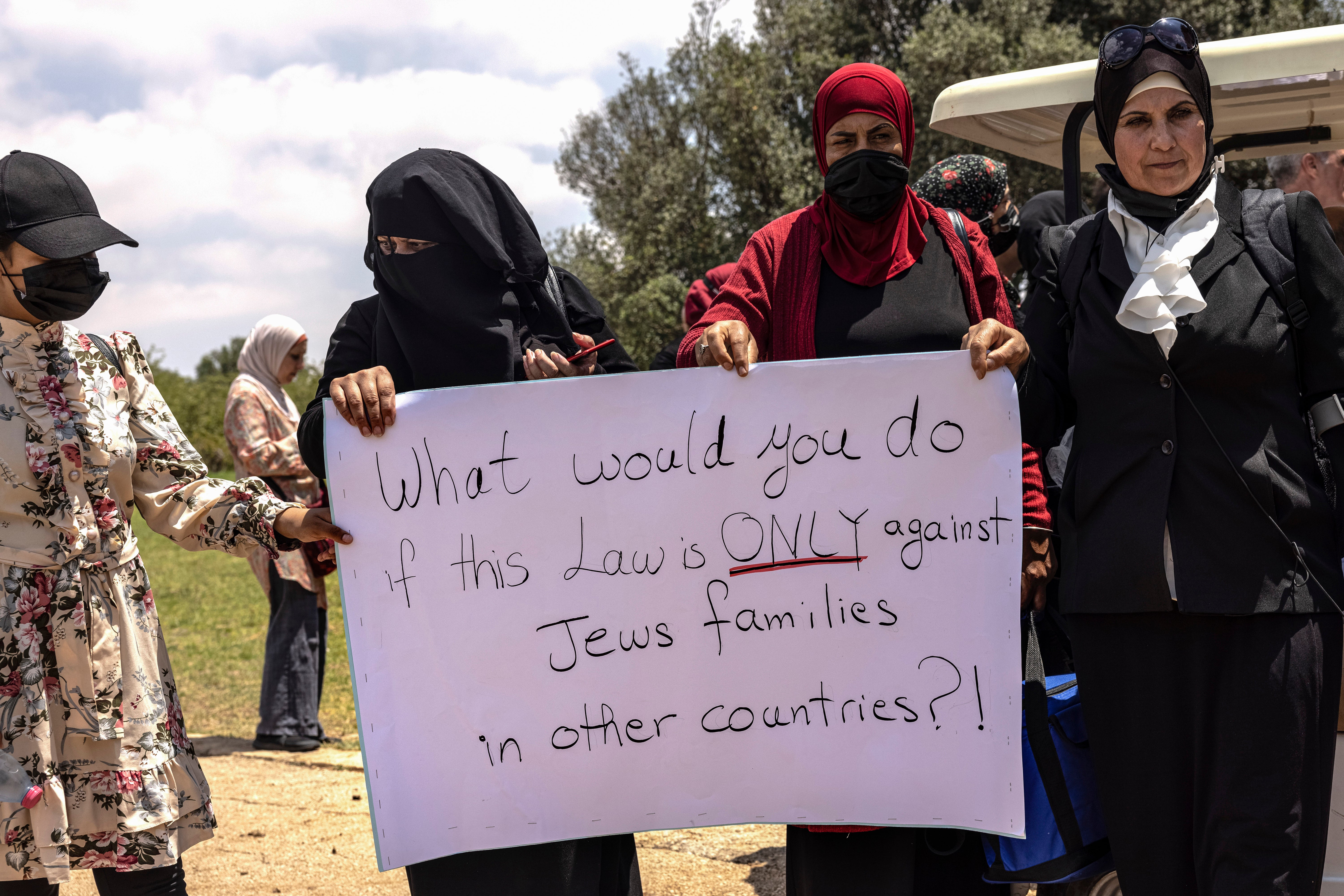Israel renews law to keep out Palestinian spouses
Israel’s parliament has renewed a temporary law dating back to 2003 that bars Israeli citizens from extending citizenship or even residency to Palestinian spouses from the occupied West Bank and Gaza

Your support helps us to tell the story
From reproductive rights to climate change to Big Tech, The Independent is on the ground when the story is developing. Whether it's investigating the financials of Elon Musk's pro-Trump PAC or producing our latest documentary, 'The A Word', which shines a light on the American women fighting for reproductive rights, we know how important it is to parse out the facts from the messaging.
At such a critical moment in US history, we need reporters on the ground. Your donation allows us to keep sending journalists to speak to both sides of the story.
The Independent is trusted by Americans across the entire political spectrum. And unlike many other quality news outlets, we choose not to lock Americans out of our reporting and analysis with paywalls. We believe quality journalism should be available to everyone, paid for by those who can afford it.
Your support makes all the difference.Israel's parliament has renewed a temporary law dating back to 2003 that bars Israeli citizens from extending citizenship or even residency to Palestinian spouses from the occupied West Bank and Gaza.
Israel says the law, which was first enacted during a Palestinian uprising, is needed for security. Critics view it as a racist measure aimed at maintaining the country's Jewish majority. The law is aimed at Palestinians and does not apply to Jewish settlers in the West Bank as they already have Israeli citizenship.
The Knesset failed to pass the law last summer because it did not have the support of left-wing and Arab members of the governing coalition. The opposition, led by former Prime Minister Benjamin Netanyahu, supports the law but declined to vote for it to embarrass the government.
Interior Minister Ayelet Shaked, a staunch nationalist, took measures to prevent family unification during the several months when the law languished while campaigning for its renewal. She and other officials have acknowledged it is in part aimed at preserving Israel's Jewish majority.
The law passed late Thursday with help from the opposition but without the left-wing Meretz and the United Arab List, an Arab party that made history by joining the governing coalition last year.
Shaked tweeted that the bill's passage was a victory for “a Jewish and democratic state” and a defeat for “a state for all its citizens." The latter phrase is often used by Israel's Arab minority to refer to their aspirations for equality.
Ayman Odeh, an Arab lawmaker, retweeted Shaked, calling it a victory for “ an apartheid state.”
The law mainly affects the Arab minority, which accounts for 20% of Israel's population of 9.5 million and has close family ties to Palestinians in the West Bank and Gaza. They have citizenship, including the right to vote, and have gained acceptance and influence in a number of spheres, but still face widespread discrimination.
The Citizenship and Entry into Israel Law was enacted as a temporary measure in 2003, at the height of the second intifada, or uprising, when Palestinians launched scores of deadly attacks inside Israel. Proponents said Palestinians from the occupied West Bank and Gaza were susceptible to recruitment by armed groups and that security vetting alone was insufficient.
The law has been continually renewed even after the uprising wound down in 2005 and the number of attacks plummeted. Today, Israel allows more than 100,000 Palestinian workers from the West Bank to enter on a regular basis.
Because of the law, Arab citizens have few if any avenues for bringing spouses from the West Bank and Gaza into Israel. The policy affects thousands of families.
The law does not apply to the nearly 500,000 Jewish settlers who live in the West Bank, which Israel captured in the 1967 war and which the Palestinians want for their future state.
Under Israel’s Law of Return, Jews who come to Israel from anywhere in the world are eligible for citizenship.